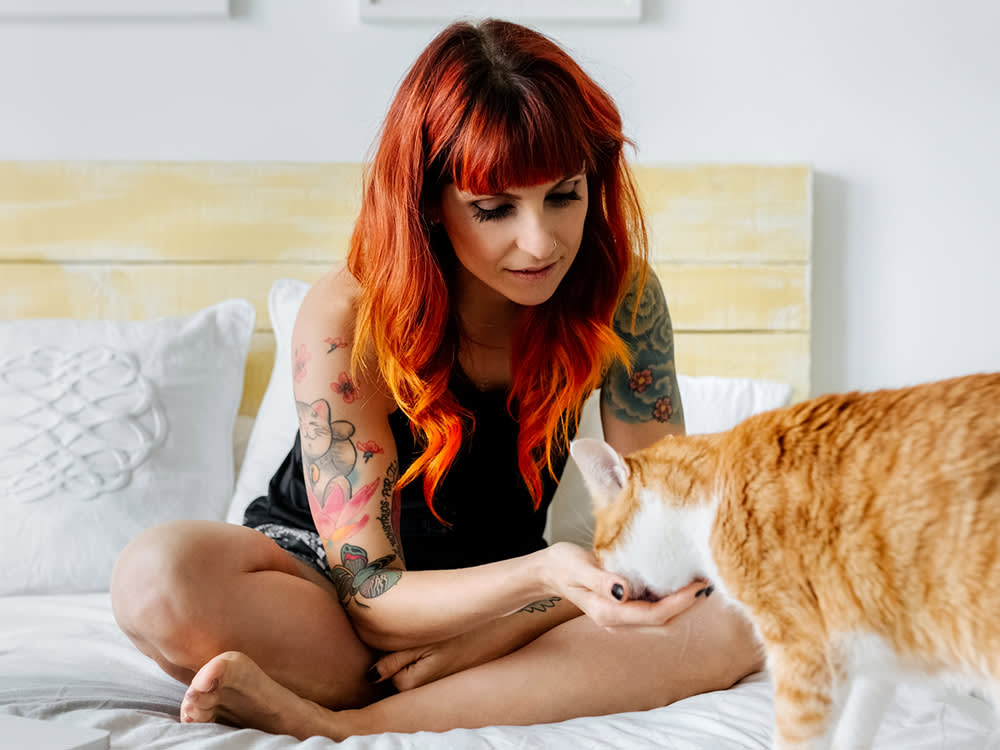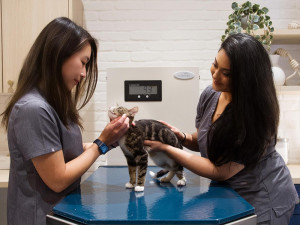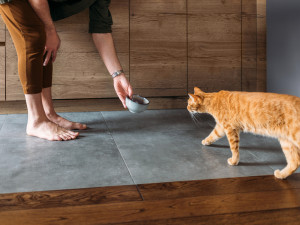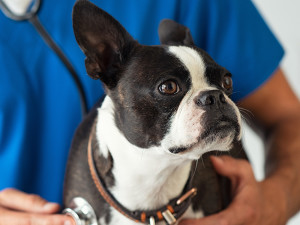Does My Cat Really Need to See a Vet?
Cats can be hard to read. Especially when they’re sick. Or…not sick? We asked a veterinarian how to tell.

share article
Cats can be hard to read. Especially when they’re sick. Or…not sick? It’s so hard to tell! And the next thing you know you’ve blown up your day and rushed over to the ER vet only to be told, “It’s probably nothing — just keep an eye on him and bring him back if anything changes.”
Look, times are tough. And vets can be expensive. That’s assuming you can even get in for an appointment — something that has become increasingly difficult during the pandemic, with so many new pet parents around. And, yes, when it comes to the health of your pet, it’s better to be safe than sorry. But wouldn’t it be nice to know if you’re overreacting before you wrangle that moody ball of fur into a carrieropens in a new tab?
That’s why we spoke with Dr. Annette Louviere — a licensed veterinarian specializing in cats and an active member of American Association of Feline Practitioners — to see if we could gain some insight into when it’s truly necessary to take your cat to the vetopens in a new tab and when it’s maybe better just to stay at home and wait. Because not everything is an emergencyopens in a new tab. It can’t be, right? And if not, you shouldn’t have to treat it like it is.
You’re a vet. There must be tons of times when people bring their pets in and it turns out to be nothing, right?
I never want to undermine a pet parent’s concern, especially since cats are skilled at hiding their illness.
But…
One issue that comes to mind is when a cat is sneezing with scant amounts of clear discharge and no changes to energy levels, appetite, etc. This is especially common after an event the cat finds stressful: a recent change in environment, people visiting, a new addition to the family, etc., and can often be attributed to a flare up of an upper respiratory virus, like feline herpes. Luckily, most cases will resolve within a few days without much intervention necessary. That said, if the discharge ever becomes green or yellow, then it’s time to see the veterinarian.
Just like in humans. Got it! So what other signs should I look out for? Not relating to nose discharge necessarily, but just generally.
Any change in appetite or activity is worrisome in cats, and it’s sometimes very subtle. Cats are stoic creatures who will hide illness as long as possible, so if pet parents are observing lethargy or a decreased appetiteopens in a new tab then it’s important to get on top of why these things are happening.
You said changes in behavior. What if my cat is just moody?
While cats have emotions and are undoubtedly smart creatures, they don’t act out of spite or revenge. If a cat is demonstrating inappropriate eliminationopens in a new tab, then it’s best to rule out medical causes, like idiopathic cystitis or urinary crystalsopens in a new tab, before considering it’s a behavioral preference, like an aversion to the litter substrate or box location.
What about hairballs — they are normal, right? Gross, but normal.
It’s well known that cats may produce an occasional hairballopens in a new tab. However, if vomiting is routinely frequent — and I qualify that as more than twice monthly, hairballs included — then it may be a sign of something brewing. Frequent vomitingopens in a new tab is a non-specific clinical sign and can be associated with things ranging from parasites to food intolerance to inflammatory bowel disease and more.
How do I know when something is really and truly an emergency, and I need to take my pet to the ER vet vs. waiting until I can get in to see my primary vet?
Luckily, veterinary telemedicineopens in a new tab allows just this question to be answered in real time for those pet parents wanting confirmation. Or, calling the emergency veterinary hospital and asking them may help give some indication for a sense of urgency. And there are a few signs that definitely warrant an emergency visitopens in a new tab. This is not a comprehensive list, by any means, but it’s a good place to start:
Obvious signs of pain
Straining to urinate or defecate
Difficulty breathing
Significant amount of bleeding or an open wound
Seizures or collapsing episodes
Inability to move one or more limbs
Any toxin or poison ingestion
That’s helpful. I think I’m just a bit wary because when I used to bring my cat in for an ear infection, my old vet always wanted to do expensive blood work, then just prescribed the same drops they gave me before. I mean, what is up with all that super expensive blood work?
Some vets may be looking at the big picture of your cat’s health, while others focus on the problem at hand. Neither approach is wrong, per se. But it’s good to have an open dialogue with your veterinarian so you’re on the same page regarding the approach to your pet’s health.
How do I talk to my vet about the need to take care of my pet and the realities of my financial situation?
You should also feel comfortable asking questions and discussing next steps with your veterinary team. It shouldn’t be a one-sided conversation. So, it’s OK to ask, “What information will this test give us, and how will knowing that help?” Open communication between veterinarians and pet parents is important for both sides to make the most informed decisions. This way, they are aware of both your needs and your pets’.

Charles Manning
Charles Manning is an actor, writer, and fashion/media consultant living in New York City with his two cats, Pumpkin and Bear. Follow him on Instagram @charlesemanningopens in a new tab.
Related articles
![Uncomfortable looking gray cat sitting on a window sill]() opens in a new tab
opens in a new tabShould Your Cat Go to the ER?
Here are six good reasons to haul tail to the emergency room.
![A vet and a vet tech check up on a happy grey kitten in the office]() opens in a new tab
opens in a new tabHow to Find a Vet Who Loves Your Cat Like You Do
I had to kiss a lot of frogs to find the perfect vet. Luckily, veterinarian Dr. Annette Louviere has some tips so you don’t have to, too.
![Profile view of a man giving a cat food to eat]() opens in a new tab
opens in a new tabWhy Is My Cat Not Eating? Causes, Symptoms, and Treatment
A veterinary nutritionist explains why your cat isn’t eating and how to increase their appetite.
![French bulldog being examined at the vet via stethoscope]() opens in a new tab
opens in a new tab9 Tips for Saving Money at the Vet
Ways to lower your bill — without compromising your pet’s health.
![grey and white cat with tongue sticking out]() opens in a new tab
opens in a new tabWhy Does My Cat Keep Throwing Up?
Here’s when you should worry.




